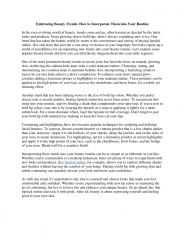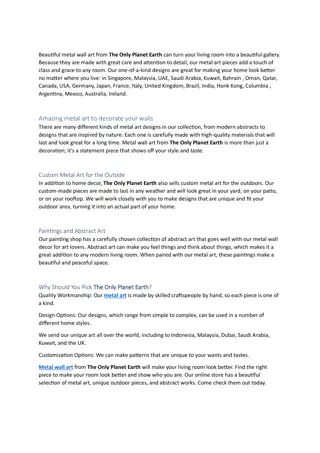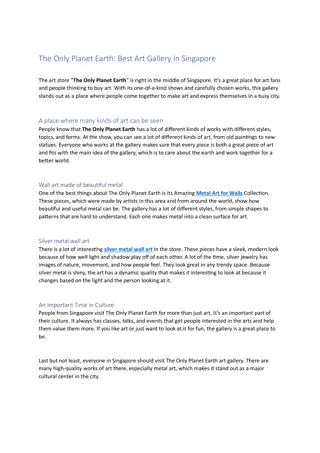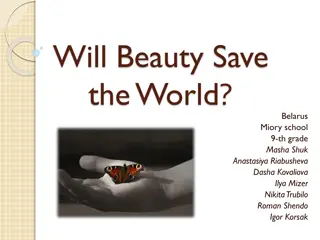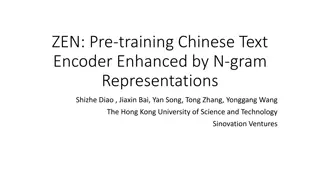The Art of Zen Living: Embracing Simplicity and Beauty
Discover the essence of Zen living through the concepts of Komorebi, Wabi-Sabi, Cha-no-yu, and the profound tradition of tea ceremonies. Delve into the tranquility of nature, imperfection, and the ritual of tea-drinking as pathways to self-realization and inner peace.
Download Presentation

Please find below an Image/Link to download the presentation.
The content on the website is provided AS IS for your information and personal use only. It may not be sold, licensed, or shared on other websites without obtaining consent from the author.If you encounter any issues during the download, it is possible that the publisher has removed the file from their server.
You are allowed to download the files provided on this website for personal or commercial use, subject to the condition that they are used lawfully. All files are the property of their respective owners.
The content on the website is provided AS IS for your information and personal use only. It may not be sold, licensed, or shared on other websites without obtaining consent from the author.
E N D
Presentation Transcript
Komorebi Sunlight that filters through the leaves of the trees
Wabi-Sabi A style of life focused on finding beauty within the imperfections of life and accepting peacefully the natural cycle of growth and decline.
Tea Until the VIII century, tea was used in China only as a remedy. Then, entered the domain of poetry and became an elegant distraction. In the XIII century, the samurai began to drink tea and the pillars of what would later become a ceremonial were established. In the XV century, tasting becomes an aesthetic religion, the theism, a cult based on the worship of the beauty rescued from the sordidness of vulgarity. Theism inspired its followers to reach purity and harmony, offering them the mystery of mutual charity.
"The taste of tea has a subtle charm that makes it irresistible, particularly suitable for idealization. Tea lacks the arrogance of wine, lack the conscious individualism of coffee, lack the smiling innocence of chocolate. " Okakura
Gradually, tea went from being a poetic pastime to become a method of self-realization. "We wait the Great Avatar. Meanwhile, let s take a sip of tea. The sunset shines among the bamboo, water sources are bubbling with delight, the sigh of the pines is heard in our hut. Let dreams fade and let's immerse ourselves in the wonderful simplicity of things.
Sukiya: the tea house Sukiya means Residence of the Emptiness or Residence of the Asymmetry. Originally it was a temporary building erected poetically, naked of all ornament and for that very rich in space. It was consecrated to the worship of the imperfect: some details were always left unfinished to allow playful imaginations to finish them at their pleasure.
The emptiness The sukiya is made to house only five people and its style is simple and similar in purism to Zen monasteries. The roji or path across the garden symbolizes the first stage of meditation; it is meant to break all ties with the outside world and to prepare the visitor by providing him with a fresh feeling.
Inside, everything is designed to preserve the peace of the soul: the sound of the kettle boiling on the fire; some pebbles into the kettle sound like a cataract muffled by the clouds she herself is creating. The light penetrates gently due to the slope of the roof. Neatness is important but is wisely measured: for example, drops of water from a vase do not need to be cleaned, they suggest moisture and freshness.
None of the materials used in the construction of the room is everlasting: only the spirit housed at the Residence of Emptiness must be eternal. Here, Emptiness expresses its Taoist meaning: the void that contains everything, the void from which everything arises.
The art of being in the world Zen refers to the present. "It's not about ignoring the rights of posterity, Okakura says, but about enjoying the best of the present time. Nor is it to disregard the creations of the past, but about placing them at our convenience. "
Tea masters cared to preserve the serenity of their spirits. The shape and color of the dresses, the balance of their bodies, the walking pace, everything was chosen to achieve harmony. They struggled not only to be artists, but to become an expression of beauty.
Serenity During the ceremony, they directed the conversation so that no one went excluded and no topic would altered the surrounding harmony. "The most effective way to have good relationships with any living thing is to look the best you found in it and then help to bring it to its best."
Zengetsu (Tang dynasty): advice for his pupils Living in the world yet not forming attachments to the dust of the world is the way of a true Zen student. When witnessing the good action of another encourage yourself to follow his example. Hearing of the mistaken action of another, advise yourself not to emulate it. Even though alone in a dark room, be as if you were facing a noble guest. Express your feelings, but become no more expressive than your true nature. Poverty is your treasure. Never exchange it for an easy life.
A person may appear a fool and yet not be one. He may only be guarding his wisdom carefully. Virtues are the fruit of self-discipline and do not drop from heaven of themselves as does rain or snow. Modesty is the foundation of all virtues. Let your neighbors discover you before you make yourself known to them. A noble heart never forces itself forward. Its words are as rare gems, seldom displayed and of great value. To a sincere student, every day is a fortunate day. Time passes but he never lags behind. Neither glory nor shame can move him.
Censure yourself, never another. Do not discuss right and wrong. Some things, though right, were considered wrong for generations. Since the value of righteousness may be recognized after centuries, there is no need to crave an immediate appreciation. Live with cause and leave results to the great law of the universe. Pass each day in peaceful contemplation.
Syen Shak: "My heart burns like fire but my eyes are as cold as dead ashes." Retire at a regular hour. Partake of food at regular intervals. Eat with moderation and never to the point of satisfaction. Receive a guest with the same attitude you have when alone. When alone, maintain the same attitude you have in receiving guests. Watch what you say, and whatever you say, practice it. When an opportunity comes do not let it pass by, yet always think twice before acting. Do not regret the past. Look to the future. Have the fearless attitude of a hero and the loving heart of a child. Upon retiring, sleep as if you had entered your last sleep. Upon awakening, leave your bed behind you instantly as if you had cast away apair of old shoes. In the morning before dressing, light incense and meditate.
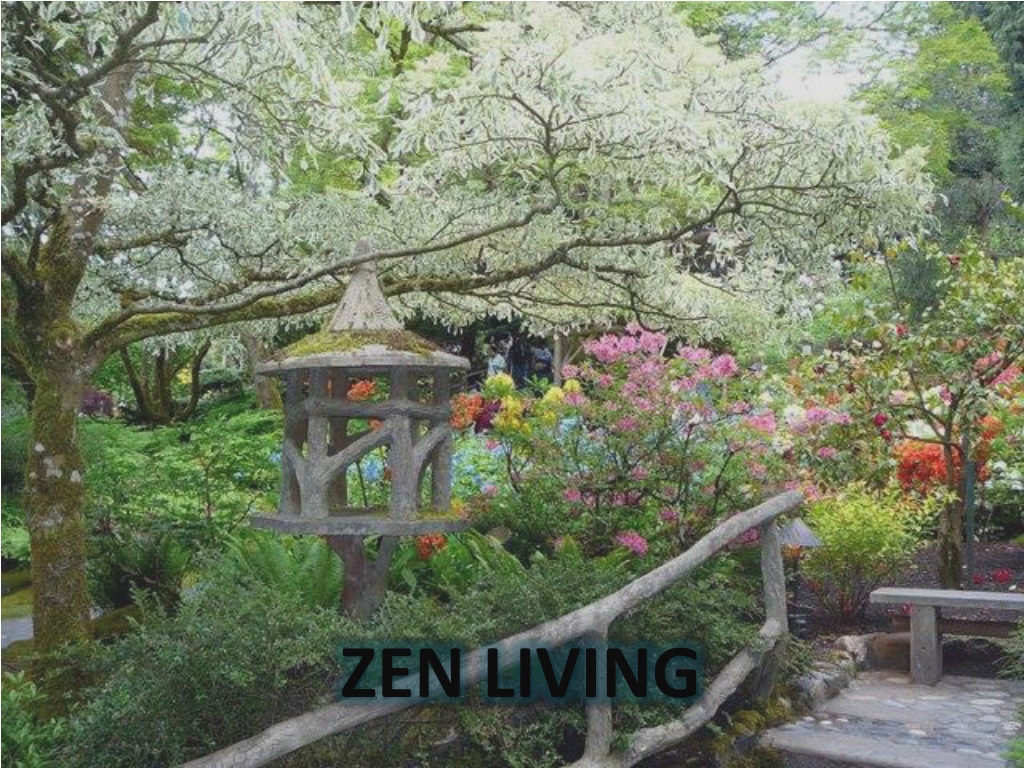






![[PDF⚡READ❤ONLINE] Zen Mind, Beginner's Mind: 50th Anniversary Edition](/thumb/20459/pdf-read-online-zen-mind-beginner-s-mind-50th-anniversary-edition.jpg)
